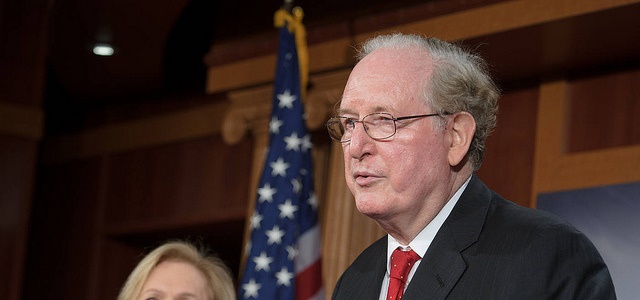 This week, the U.S. Senate Committee on Commerce, Science, and Transportation weighed in on immigration reform with a hearing on the role of immigrants in America’s innovation economy. Remarks from Sens. Rockefeller (D-WV) and Thune (R-SD) noted the contributions of immigrant innovators and entrepreneurs. Immigrants in the United States were named as inventors or co-inventors on 25.6 percent of international patent applications filed from the U.S. in 2006. Furthermore, temporary workers and permanent residents made contributions to over half of the international patents filed by several large, multi-national companies. Temporary and permanent foreign-born workers represent at least 24 percent of the nation’s scientists and 47 percent of engineers with doctoral degrees.
This week, the U.S. Senate Committee on Commerce, Science, and Transportation weighed in on immigration reform with a hearing on the role of immigrants in America’s innovation economy. Remarks from Sens. Rockefeller (D-WV) and Thune (R-SD) noted the contributions of immigrant innovators and entrepreneurs. Immigrants in the United States were named as inventors or co-inventors on 25.6 percent of international patent applications filed from the U.S. in 2006. Furthermore, temporary workers and permanent residents made contributions to over half of the international patents filed by several large, multi-national companies. Temporary and permanent foreign-born workers represent at least 24 percent of the nation’s scientists and 47 percent of engineers with doctoral degrees.
But Senator Rockefeller also noted that high-skilled immigrants are found across America, not only in high-tech industries. Foreign-born doctors and other health care workers, for example, play critical roles in medically underserved areas. In particular, he said, “My home state of West Virginia has benefited from the high-quality foreign-trained doctors who practice in underserved rural areas. We also benefit from the foreign professionals who do some of the specialized advanced manufacturing jobs in our state.” One of the panelists, Gwenne Henricks of Caterpillar Inc., noted, “there may be a perception that high skilled immigration reform would only benefit Silicon Valley-type companies…but it will also benefit Midwest manufacturers.”
In the course of the hearing, senators and witnesses emphasized that current immigration laws can sometimes make our country a less welcoming place for high-skilled immigrants. High demand for H-1B visas and long waiting times for green cards make it more difficult for talented foreign students to work or start a business here after they finish their degrees. Unfortunately, some students give up and go home, or they move to countries like Canada or Australia, which are actively recruiting highly skilled immigrants. One of the panelists, Jeffrey Bussgang of Flybridge Capital and Harvard Business School, echoed those comments by stating, “In my own role…I have watched our dysfunctional immigration system turn away the best and brightest from creating jobs and wealth in America.”
The hearing highlighted concerns that the U.S. faces a workforce challenge for maintaining and strengthening its position as a world leader in innovation. Senator Rockefeller suggested that, “to maintain our lead, we have to be producing enough workers with the skills and training to do the jobs that our 21st century innovation economy is creating. One of the reasons American companies hire foreign engineers and scientists is because our U.S. education system is not currently producing enough of them.” In addition to attracting and retaining talented individuals from abroad, we must encourage our own children to pursue science, technology, engineering, and math (STEM) subjects. We must applaud the accomplishments of science fair winners, for example, the way in which we celebrate sports champions.
The hearing also gave Senator Rubio (R-FL) an opportunity to discuss S. 744, which he characterized as reflecting an attempt to balance efficiency for employers and protections for workers. He noted that immigration reform will only work if it’s good for the American economy – reforms that allow job-creating industries to attract and retain talent in the U.S. with benefits throughout the country. Rubio reminded the audience of multiplier effects – that for every one STEM worker we retain in the U.S, a number of additional jobs are created. That is all the more reason why we shouldn’t perpetuate a broken system that encourages businesses to move those jobs and their multiplier effects elsewhere.
Photo Courtesy of Senator Rockefeller.
FILED UNDER: Entrepreneurship, H-1B, Hearings, High Skilled Immigrants, immigration legislation, immigration reform, Senate, Visas


